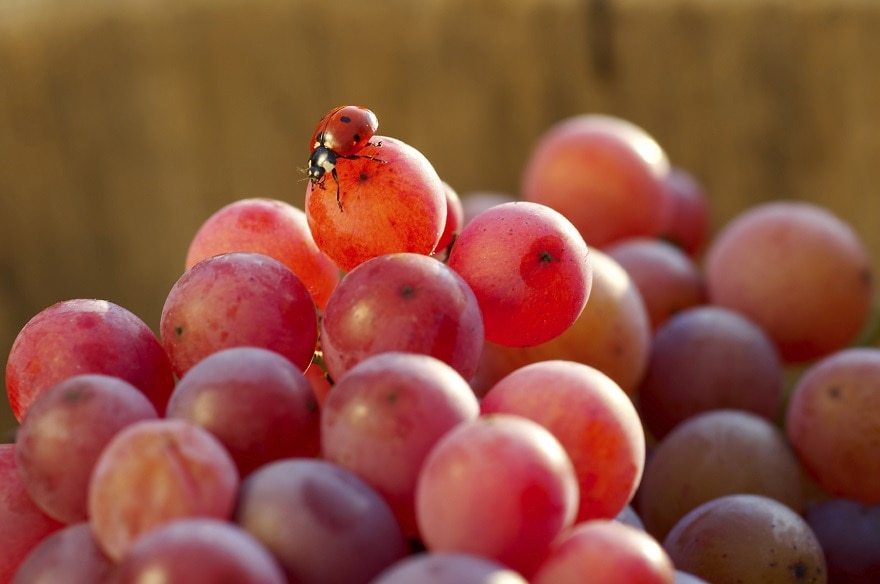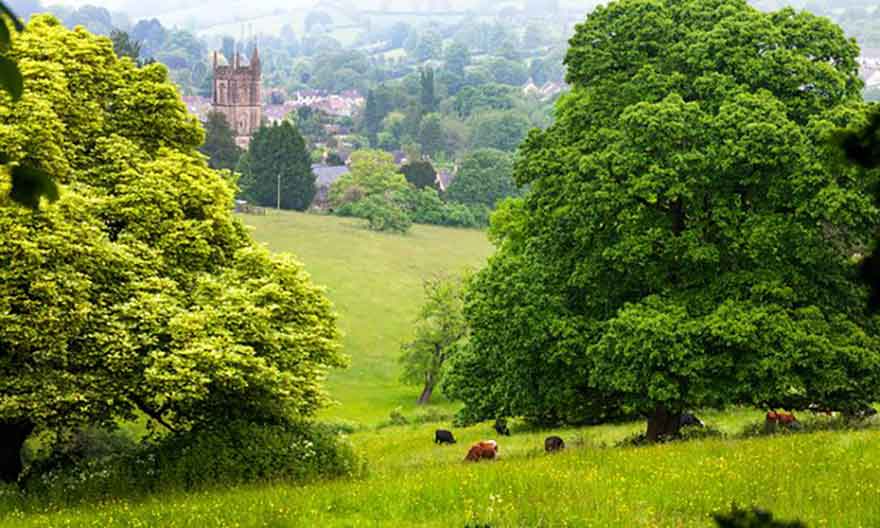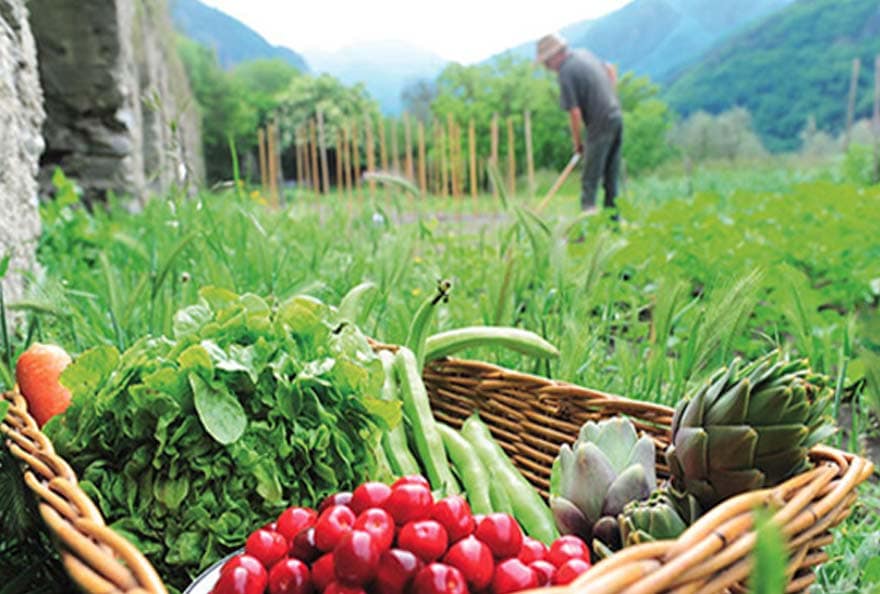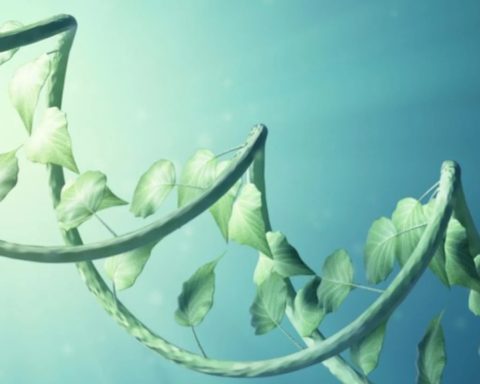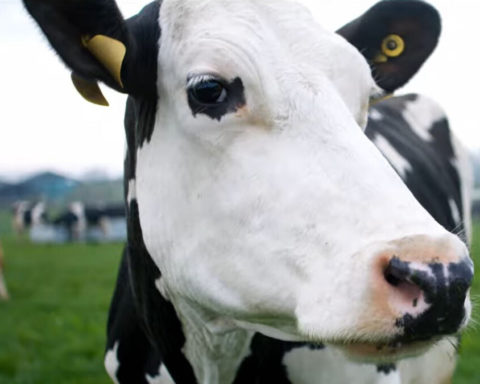Food is a major issue of material (feeding people) and immaterial (value, culture, beliefs, representations) civilization.
Previously a safe haven adorned with all the benefits, food appears more and more as a misdeed to be mistrusted and discarded. Satisfaction with the abundance of food in the West has been transformed into concern and a search for alternatives in the face of its realities and consequences. The breakdown of the industrial model of growth, the loss of the intergenerational link with the agricultural world, the global ecological crisis, the decline of the idea of progress and the rise of a culture of narcissism (personal development, self-expression, body worship) are leading to the emergence of critical relationships with food and a new food ethic in search of reassurance and responsibility.
Ahe food industry is directly impacted and criticized [1] by this new ethic. It is no longer just a question of eating better, but of eating less, or even of stopping eating or excluding certain foods. Whether seen from the angle of animal suffering, "harm to the body" (fat/"too much"/malbouffe), the harmful effects of waste from industrial and mechanized agriculture on the environment, the denaturation of food resources by bio and nanotechnologies, food is intrinsically called into question.
Moreover, food ethics is based on an aspiration to mastery and self-control (body and mind) through food in a dynamic of singularization and personalization of food described and thought by academic works that refer to [2]. This new food ethic can be summed up in three main pillars, each of which comprises more or less radical realities:
The ethics of nature and authenticity
It revolves around the search for the natural [3]of purity, simplicity and a return to the state of nature. The ethics here are based on the (more or less militant) principle of exclusion and food purity, breaking with the dominant practices based on factory farming and/or meat food. The most common and developed practices cover those of the followers (regular or intermittent) of organic agriculture, whether or not they are "locavores" (individuals consuming only food produced on a local or very local scale), and who aspire to authentic and undenatured food. Vegetarian (exclusion of animal consumption), vegan (exclusion of animal consumption and products of animal origin) and "vegan" (additional refusal of any product resulting from the use of an animal, such as leather) practices, whose number of "practitioners" is increasing, may, for their part, be part of a new sacralization of nature (which cannot be desecrated) and its components, by excluding meat from their consumption. Finally, more marginally, the community of "crudivorists" groups together those who eat exclusively raw food in order to better return to the origins of human nutrition in a phantasmagoriated quest for the state of nature and the myth of origins.
Ethics of the body and health
It includes all the individual quests for well-being, purification, safety, health, as a token and sign of individual performance and achievement. These quests are part of the growing injunction to cleanse and/or reduce food by purifying the body of all its toxins and nutritional excesses harmful to the body and individual fulfilment. Communities are thus organizing themselves around the refusal to consume certain foods that are intrinsically harmful (for health reasons or food intolerance) or perverted (by the food industry) and dangerous to health.
This is the case for "Nomilk" (lactose exclusion) or "gluten-free". Others practice, occasionally or regularly, food asceticism as shown by the contemporary craze for diets. [4], detox cures and food fasts. On a pathological side, these eating practices are also expressed by eating disorders and obsessions aimed at a systematic and obsessive control of food (the "orthorexis"). Extreme practices that can lead to the legitimization and valorization of anorexia, like the "pro-ana" communities on the internet. If most of these diets are carried out according to individualistic and hedonistic aspirations (slimness, health, beauty), mystical asceticism with a spiritual dimension also exists on the margins where the quest for health is intertwined with the quest for holiness and spiritual elevation (escape/mortification of the body and valorization of the soul). Certain (very marginal) groups even aspire to the partial or total emancipation of humanity from any diet, such as the "breathing" sect which advocates a New Age ethic based on the complete cessation of nutrition in order to achieve happiness by exhorting its members to feed exclusively on light (prava). In addition to this search for sanitation [5]The ethics of the body and health is finally part of a desire to control and measure one's diet individually. This takes the form of "quantified self" food (smart cutlery, connected ear calorie counter, etc.) to measure its nutrition and its effects on the body (time of correct chewing of food, calorie and nutritional intake, etc.).
Ethics of social and environmental responsibility
This goes beyond the commitments of brands and retailers to consumers and includes aspirations to guarantee the effective social and environmental rights of all "forgotten" food actors: land, animals, producers and workers. [6]. The same applies to the condition of animals, the cause of which may be to ensure dignified and decent conditions for farm animals. [7] but also to campaign for "anti-speciesism"... [8] (an ideology widespread among some vegans) refuting the very notion of species and hierarchy between man and animal and ensuring equal rights between "human animals" and "non-human animals". [9]. This ethic also consists in identifying the social and environmental impacts of food production in order to guarantee its virtuous aspects, in particular by promoting short circuits, organic charters and labels, fair trade (ensuring recognition of agricultural workers through the guarantee of a fair agricultural income) or "sustainable and ethical agriculture" (permaculture).
Although these new food practices and ethics are still marginal, particularly in Latin and Catholic countries (as an indication, there are between 1.5 and 3% of vegetarians in France compared to between 8 and 10% in the United Kingdom and Germany), they are nonetheless promising and increasingly porous and therefore crucial to consider in several ways for the food industry:
New niche markets
The consumer communities we have mentioned (vegan, Noglut, etc.) often feel excluded and marginalized, as their alternative food route often resembles an obstacle course. Without undermining the voluntarily marginal (and "anti-system") militant nature of the positioning of certain players, there is in fact a niche market (requiring adapted marketing) offering visible consumption solutions to these consumers.
Impacts on new horizons of food production and supply
The transition from industrial agriculture and food production to tailor-made and optimized food production capable of feeding vast urban populations while meeting health and environmental issues/challenges is to be questioned in terms of food ethics. Current innovations in agriculture are indeed promising areas for future economic development which, from the point of view of food ethics, is akin to a "pharmacon" (both a remedy and a poison).
Thus, the emergence of "smart agriculture" (or "data-driven agriculture") and "Ag Tech" (drones, autonomous tractor, monitoring, flow meters, sensors) makes it possible to optimize farmers' work through intelligent communicating systems while increasing yields and reducing the quantities of inputs and antibiotics required for agricultural production.
All these characteristics are in line with part of the food ethic (health, safety, environment) but accentuate and radicalise the feeling of dehumanisation of food.
The development of urban micro-farms on the basis of "hydroponics" (intensive and circular agricultural production in an ultra-short circuit), "aquaponics" (a technique for growing plants in symbiosis with fish farming), "aeroponics" (off-ground crops) or permaculture (agro-ecology based on a diversity of production and the association of several crops) can move towards bringing agriculture (healthier and less mechanized) and city dwellers closer together. But this urban agriculture is also very energy-consuming, has uneven nutritional qualities, and can contribute to radicalizing the feeling of artificiality, of the "above-ground" and disembodied character of agriculture.
The arrival of "cell-based agriculture" aimed at reproducing animal proteins without resorting to animal husbandry (vegetable meat, artificial meat based on nutrient-enriched stem cells) with reduced water, soil and energy consumption, on the one hand satisfies consumers concerned about their environmental impact and excluding meat from their consumption, but on the other hand reinforces the fears associated with biotechnological agriculture, of which we no longer know what it is made of or how it is constituted.
Impacts on trade strategies and food supply content
This new food ethic, without becoming the majority (especially in its most extreme characteristics), can nevertheless influence the representations and behaviour of consumers in general in the sense of increasing expectations in terms of naturalness (as close as possible to the state of nature against the artificialisation and manipulation of living things), environmental and health sustainability of the food supply, and transparency in production (especially with regard to animal suffering). A repositioning of commercial strategies and food supply to take greater account of these aspirations by involving the consumer could make it possible to respond to the infusion of these new representations and food practices among the greatest number of people.
Expectations of transparency and empowerment
The desire to control the food products we consume (traceability, food safety, nature and conditions of production and transport, exact and understandable composition of processed foods etc.) and to act on our food consumption (feedback, self-measurement and its impact on the ecosystem etc.) are requirements whose failure to take into account is likely to fuel negative food ethics (by exacerbating in particular the desire for a fantasized return to the state of nature).
This preliminary analysis of the issues and problems raised by food ethics is the starting point for the "Observatoire éthique alimentaire" (Food Ethics Observatory) launched by ObSoCo. It consists in developing, within the framework of a quantitative survey, a methodology to apprehend, measure and monitor over time the deployment, dissemination and influence of this food ethic, to understand its forms of expression as well as the motivations, practices and expectations of individuals who recognize themselves in it. It is also a question of identifying the wishes and criticisms that are formulated with regard to the agri-food industry and distributors, in order to help the latter explain and project the structuring trends (markets, production and commercial models, etc.) of the relationship with tomorrow's food.
Simon BORELHead of Research, Sociologist
With our thanks to the OBSoCo, in which the original of this article is released - October 2016
1] LEPILLER, Olivier, " Les critiques de l'alimentation industrielle et les réponses des acteurs de l'offre ", Cahiers de nutrition et de diététique, 2013, vol. Cahiers de nutrition et de diététique, 2013, vol. 48, no. 6, pp. 298-307.
2] See for example :
FISCHLER, Claude. Special power supplies. Will we still be eating together tomorrow, 2013.
ASCHER, François. Mangeur hypermoderne (Le). Odile Jacob, 2005.
3] LEPILLER, Olivier, " Valoriser le naturel dans l'alimentation ", Cahiers de Nutrition et de Diététique, 2016, vol. 51, no 2, p. 73-80.
4] According to the Nielsen Global Ingredients and Dining Out Trends survey of August 2016, 44% of Europeans (and 37% of the French) would follow a restrictive regime.
http://www.nielsen.com/content/dam/nielsenglobal/eu/docs/pdf/Global%20Ingredient%20and%20Out-of-Home%20Dining%20Trends%20Report%20FINAL%20(1).pdf
[5] ADAMIEC, Camille. Becoming Healthy: Dietary Morals, Health Practices and Self Ecology. 2014. PhD thesis. Strasbourg.
6] THOMPSON, Paul B. From field to fork: Food ethics for everyone. OUP Us, 2015.
[7] PORCHER, Jocelyn. Living with animals, a utopia for the 21st century. La Découverte, 2011.
8] See the founding book: SINGER, Peter. Animal liberation: A new ethic for our treatment of animals. New York: New York Review (distributed by Random House), 1975.
9] DUBREUIL, Catherine-Marie and DALLA BERNARDINA, Sergio. Animal liberation and vegetarianization of the world: ethnology of French anti-speciesism. Ed. of the Committee on Historical and Scientific Work, 2013.

